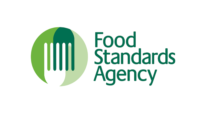Ensuring Safe Food for Britain after Brexit

The British Poultry Council (BPC) is the trade association for those involved in the production of poultry meat—chicken, turkey, duck, and goose—in the UK. We’ve been the voice of the industry since 1967. Our member businesses account for nearly 90 percent of the production in this country and cover the whole food chain: breeding, hatching, growing, slaughter, processing, and packing. Our members promote our key issue of antibiotic stewardship (discussed below), protect the health and welfare of birds, produce safe food, safeguard the efficacy of antimicrobials, and build trust with consumers.
British poultry meat farmers grow nearly a billion birds every year to standards that are among the best in the world. Facing Brexit, British food and confidence in British food producers are more important than ever. BPC members, who do not receive subsidy through the Common Agricultural Policy, are committed to producing safe, wholesome, and nutritious food for Britain. We also advocate production that respects the environment, food that is affordable and available for the average consumer, and sustainable, secure, and trusted supply chains.
We are involved in several key issues:
Access to Food
Nothing is more important than ensuring our citizens have continued access to affordable and quality food. Despite great uncertainty over Brexit, we are doing everything we can to help the government deliver a national food strategy that ensures British families and communities are well-fed.
Continuity of British food production and supply is critical to ensuring that British food, and the quality it represents, stays affordable and available for all. A dignified food system means that everyone has access to the same choice of safe, wholesome, and nutritious food products; yet Brexit threatens to create a two-tier food system based on affluence.
To secure our future food production, the British poultry meat sector is working with the government to develop a robust transition plan that means we have access to the workers we need and to avoid any disruption in the smooth movement of perishable products across the EU.
Antibiotic Stewardship
Poultry is half of the meat eaten in the UK, and we use less than 9.7 percent of the total antibiotics licensed for food-producing animals. We have successfully reduced our antibiotic use by 82 percent in the last 6 years and have stopped all preventive treatments as well as the use of colistin. (Colistin is given to poultry and other farm animals to make them gain weight faster and as preemptive protection against disease. But it is also used as a last line of defense in humans whose infections are not responding to other drugs.)
Through BPC antibiotic stewardship, the British poultry meat sector is delivering excellence in bird health and welfare by monitoring and reviewing on-farm management practices and ensuring responsible use of antibiotics throughout our supply chain.
Our farmers and veterinarians need antibiotics in their toolbox to preserve the health and welfare of our birds. Responsible use of antibiotics is about so much more than reduction targets. Zero use is neither ethical nor sustainable, as it goes against farmers’ duty to alleviate pain and suffering. We ensure antibiotic therapies are used with good animal husbandry techniques, “only when necessary,” and under the direction of a veterinarian to protect the health and welfare of birds under our care.
According to the BPC’s 2018 report, the British poultry meat sector’s focus on excellence in bird health and welfare has helped achieve:
- An 82 percent reduction in the total use of antibiotics from 2012 to 2017
- A 91 percent reduction in the use of fluoroquinolones (critically important antibiotics for human health) from 2012 to 2017
- A 39.36 percent reduction in the total use of antibiotics between 2016 and 2017
The responsible-use mandate stopped the prophylactic use of antibiotics, restricted the use of antibiotics classified as highest priority/critically important by the World Health Organization (WHO), and banned the use of third- and fourth-generation cephalosporins.
Our stewardship priorities are to review and replace antibiotics used where effective alternatives are available, reduce the number of birds receiving treatment through systems based on risk assessments, and continue to refine existing strategies using data collection, rapid on-farm diagnostics, and understanding patterns of resistance. We ensure the successful delivery of the first principles of animal husbandry, hygiene, and stockmanship by sharing best practices across the entire poultry industry.
We’re committed to upholding the UK’s position at the forefront of international efforts to keep antibiotics effective for future generations and to tackling antimicrobial resistance. The fact that we have met the government-approved sector-specific targets 2 years ahead of schedule shows that our approach is working.
According to Dr. Marc Sprenger, director, Antimicrobial Resistance Secretariat, WHO, “The British Poultry Council has shown the world that reducing the use of medically important antimicrobials is a win-win situation. Production has increased by 10 percent, even with the reduction in the use of antibiotics by 82 percent. We hope this sets an example for the global poultry industry and, indeed, for other food and farming sectors.”
Food on Every Table Campaign
With the first major review of the nation’s food system in 75 years now under way, we have a once-in-a-lifetime opportunity to contribute to a national food strategy that ensures everyone is well-fed.
We believe that government, businesses, and society must work together to deliver a food system that guarantees everyone access to the food that British growers are proud to produce.
Our “Food on Every Table” campaign reinforces the position that feeding people must remain at the heart of our society and at the core of our businesses. Government must deliver a sustainable food strategy that guarantees safe, nutritious, and affordable British food grown to British standards for everyone.
Along these lines, our submission to the National Food Strategy Consultation highlights the need for a national food strategy to focus on the purpose of food before the production of food.
Purpose of Food
Technology and innovation in British food ensure astounding efficiency and productivity, but a national food strategy must give that system both purpose and ambition, and in doing so, ask how best we can satisfy the needs of people. We believe our challenge for a national food strategy is to create a social structure in which everyone is fed healthily and sustainably while championing the values that give meaning to our relationship with British food.
A Food Strategy That Is Fit for Purpose
Our mental, emotional, and physical well-being begins with food. The self-belief and dignity that comes wrapped up in food can be a catalyst for social inclusion and can help transform lives. From an everyday customer in a supermarket to a patient in hospital to a child in school to someone who needs help from a charity or food bank, everyone should have the privilege to choose what they eat every day.
Integrated Solution
A national food strategy must be built on fairness of food, of opportunity, and of education. This strategy must be delivered through cross-departmental and cross-societal collaboration with government, industry, and civil society working together. Food supply must be seen as a national security issue and the impact on food should be considered in all legislation.
Leaving No One Behind
For the British poultry meat sector to play its fullest role in delivering a food system that leaves no one behind, our national food strategy must:
Put Food on the Table to Alleviate Hunger: With Brexit on the horizon, the cost of food is likely to rise. A national food strategy must guarantee safe, nutritious, and affordable British food grown to British standards for everyone.
Maintain a Secure Supply of Food That Recognizes British Standards in Trade Deals: British farmers have worked incredibly hard to build a food system that enhances British food values and ensures high standards of production from farm to fork. It is vital that, following Brexit, any trade deals ensure that only food that meets our high British standards can enter the British market. A national food strategy must prevent the creation of a two-tier food system, in which only the affluent can afford to eat British food grown to British standards.
Use British Food as a Catalyst for Improving Health, Well-Being, and Social Care: Coming together around the table, whether at school, at a community café, or at a local club, and eating nutritious food is good for our bodies, and good for our minds. A national food strategy must recognize the vital role that access to safe, nutritious, and affordable British food grown to British standards can play in improving our nation’s health, well-being, and social care.
Ensure Access to Labor Post-Brexit: A national food strategy must ensure that food producers have continued access to labor to continue to put food on every table. Specifically, for the poultry meat sector, 60 percent of our workforce (24,100 people) are EU nationals, and every year we have about 7,200 vacancies that need to be filled with non-British workers. If these vacancies cannot be filled post-Brexit, it will have a significant impact on the production, and therefore cost, of food—all of which will pose a risk to affordability and potentially force people to go without food.
Secure a Sustainable Future for British Food by Achieving the United Nations’ Sustainable Development Goals (SDGs): To meet the United Nations’ SDGs, our food system needs to become more sustainable. A national food strategy gives us an excellent opportunity to sustainably feed people in this country, with food producers, government, and civil society all playing their part in putting food on every table for the next 75 years.
More information is available in our education video.
Closing Thoughts
As the voice of the British poultry meat industry, we have many issues to track for our members, with new challenges emerging every day: from antiparasitics to chlorine use to Campylobacter to impacts of trade and food waste. But we can’t do it alone. We’ve presented some of our key issues and programs with the hope of letting the broader food industry know we’re in the trenches to ensure safe and sustainable access to food.
Looking for a reprint of this article?
From high-res PDFs to custom plaques, order your copy today!






